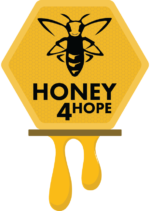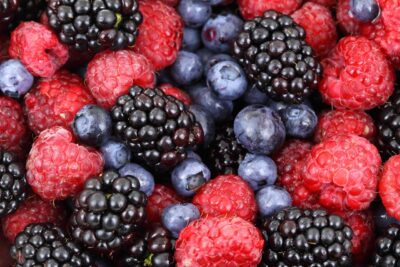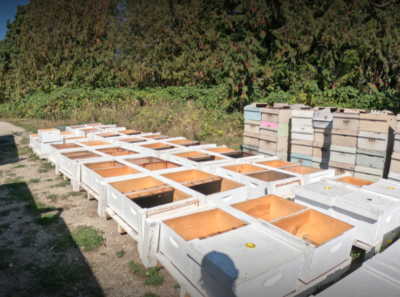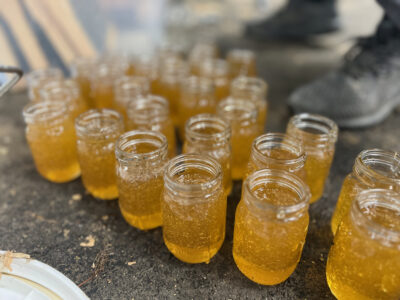During the holiday season we eat delicious snacks, festive treats, and generally gather around the dinner table with friends and family more often. But have we taken the time to think about the impact bees have on our dinner table? Bee pollination plays a crucial role in sustaining the global food chain, impacting both natural ecosystems and agricultural systems. The importance of bee pollination extends far beyond the immediate benefits to bees themselves, influencing biodiversity, ecosystem health, and the availability of food resources for various organisms, including humans.
- Biodiversity: Bee pollination contributes significantly to plant biodiversity. Many plants, both wild and cultivated, rely on pollination to reproduce. Bees, with their foraging behavior, facilitate the transfer of pollen from the male parts of flowers (anthers) to the female parts (stigmas), enabling fertilization and the production of seeds. This process is essential for the reproduction of a vast array of flowering plants, contributing to the overall biodiversity of ecosystems.
- Ecosystem Stability: Bee-pollinated plants often form the foundation of ecosystems. They provide habitat and food sources for a variety of animals, from insects to birds and mammals. The stability of these ecosystems depends on the presence of diverse plant species, many of which rely on pollinators like bees for reproduction. Disruptions in bee populations can have cascading effects, affecting the entire ecosystem.
- Crop Production: In agriculture, the role of bee pollination is invaluable. Many crops that constitute a significant portion of the human diet, such as fruits, vegetables, and nuts, rely on pollination for reproduction. Bees are highly efficient and effective pollinators, enhancing the yield and quality of crops. In fact, it’s estimated that a considerable percentage of the world’s food crops depend on insect pollination, with bees being major contributors. For example, here are a few foods reliant on pollination: fruits such as apples, blueberries, cherries, peaches, raspberries, kiwi’s, melons, nuts such as almonds, cashew or kola, avocados and cocoa beans.
- Genetic Diversity: Bee pollination promotes genetic diversity within plant populations. Through cross-pollination, different plants exchange genetic material, leading to more robust and adaptable plant populations. This genetic diversity is crucial for the resilience of plant species in the face of environmental changes, pests, and diseases.
- Food Security: The interconnectedness of bee pollination with crop production directly impacts global food security. A decline in bee populations could lead to reduced crop yields and increased food prices. Maintaining healthy bee populations ensures the continued availability of diverse, nutritious foods for human consumption.
- Economic Impact: Beyond sustenance, bee pollination has significant economic implications. The agricultural sector, including commercial farming and apiculture (beekeeping), depends on the pollination services provided by bees. The economic value of bee pollination extends to billions of dollars globally, highlighting its importance for both large-scale agriculture and local economies.
In conclusion, bee pollination is a linchpin in the intricate web of ecological interactions that sustains life on Earth. When you gather around the dinner table, take a moment to be grateful for our little pollinators and support your local beekeepers!




